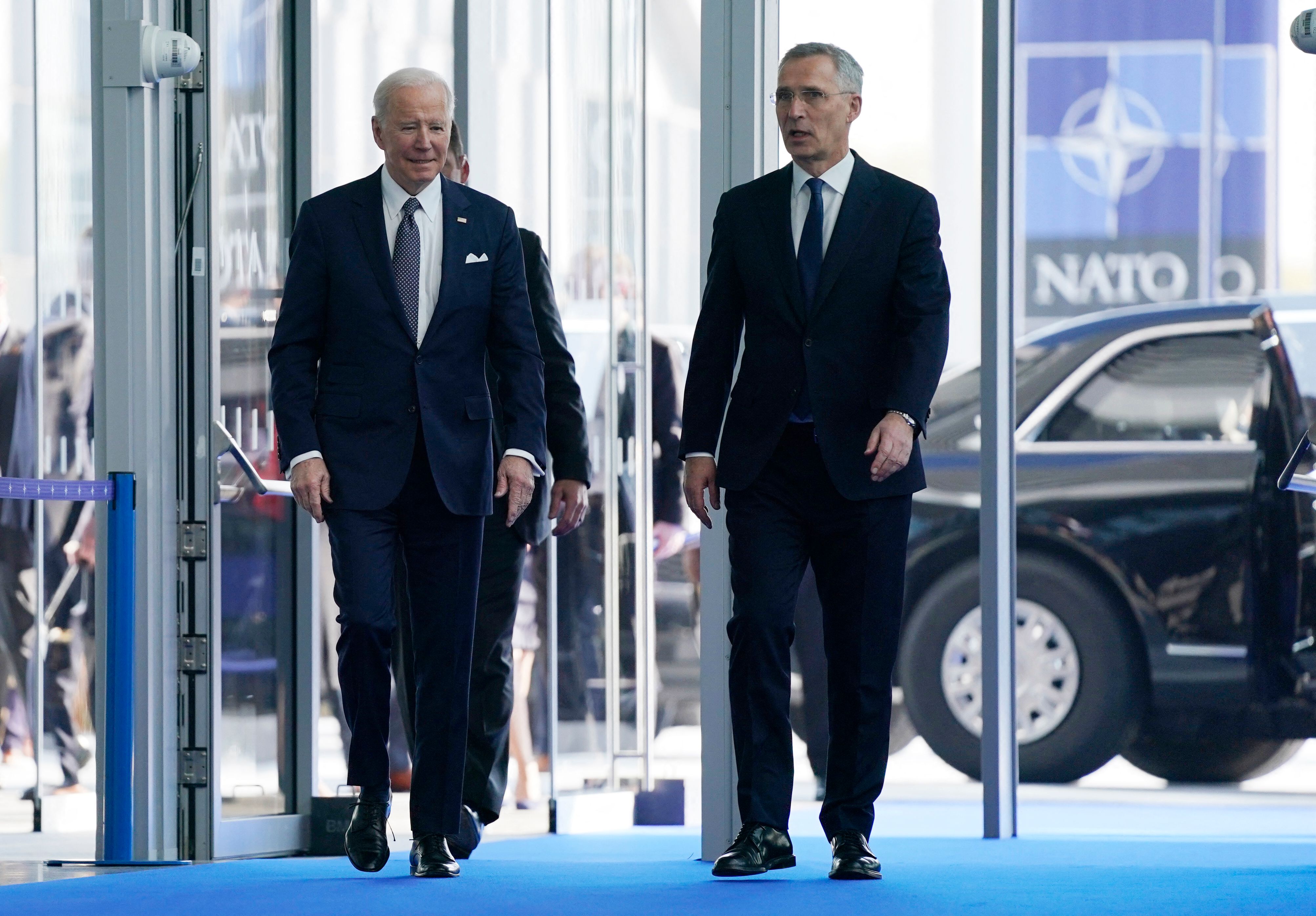Biden’s Stance on NATO

Biden nato – President Biden has consistently emphasized the importance of NATO, describing it as “the cornerstone of our collective security” and “a linchpin of American foreign policy.” He has reaffirmed the United States’ commitment to Article 5 of the NATO treaty, which states that an attack on one member is considered an attack on all.
Biden’s address to NATO allies in Brussels reinforced the message delivered in his recent ABC interview. He emphasized the need for collective action against Russian aggression, underscoring the importance of unity and resolve within the alliance. Biden’s unwavering stance on NATO’s commitment to Article 5 served as a reassurance to member states and a clear deterrent to potential adversaries.
Biden’s actions have supported his pro-NATO stance. He has increased US military presence in Europe, participated in NATO exercises, and provided military aid to Ukraine in response to the Russian invasion. He has also worked to strengthen NATO’s political unity, meeting with NATO leaders and reaffirming the alliance’s shared values.
Biden’s commitment to NATO was reaffirmed at the NATO Summit in Washington DC , where he emphasized the alliance’s importance in maintaining global security. The summit brought together leaders from NATO member states to discuss pressing issues and reaffirm their commitment to collective defense.
Biden’s participation underscored the United States’ unwavering support for NATO and its role in safeguarding the transatlantic partnership.
Challenges to NATO Unity
Despite Biden’s efforts, NATO has faced challenges to its unity. Some member states have been reluctant to increase their defense spending or provide military support to Ukraine. There have also been disagreements over how to respond to Russia’s aggression and the future of NATO enlargement.
Biden has worked to address these challenges through diplomacy and dialogue. He has urged NATO members to increase their defense spending and provide more support to Ukraine. He has also met with Russian President Vladimir Putin to discuss the future of NATO enlargement.
NATO’s Role in the Russia-Ukraine Conflict
NATO has played a significant role in the Russia-Ukraine conflict. The organization has provided military assistance to Ukraine, including weapons, training, and intelligence. NATO has also imposed sanctions on Russia and increased its military presence in Eastern Europe.
NATO’s response to Russia’s aggression has been effective in deterring further Russian aggression. However, it has not been able to stop Russia from continuing its military campaign in Ukraine. The conflict has implications for NATO’s future, as it raises questions about the organization’s ability to deter and defend against Russian aggression.
NATO’s Military Assistance to Ukraine
NATO has provided Ukraine with a range of military assistance, including weapons, training, and intelligence. This assistance has been essential in helping Ukraine to defend itself against Russian aggression. NATO has also provided financial assistance to Ukraine.
NATO’s Sanctions on Russia, Biden nato
NATO has imposed a range of sanctions on Russia in response to its aggression in Ukraine. These sanctions have targeted Russia’s economy, financial system, and energy sector. The sanctions have had a significant impact on Russia’s economy, but they have not been able to stop Russia from continuing its military campaign in Ukraine.
NATO’s Increased Military Presence in Eastern Europe
NATO has increased its military presence in Eastern Europe in response to Russia’s aggression in Ukraine. This increased presence has been designed to deter further Russian aggression and to reassure NATO allies in the region. The increased military presence has also been used to provide training and assistance to Ukrainian forces.
Implications of the Conflict for NATO’s Future
The Russia-Ukraine conflict has implications for NATO’s future. The conflict has raised questions about NATO’s ability to deter and defend against Russian aggression. It has also highlighted the need for NATO to adapt to the changing security environment in Europe.
NATO’s Expansion and Future: Biden Nato

Since the end of the Cold War, NATO has expanded eastward, adding 14 new member states. This expansion has been driven by a number of factors, including the collapse of the Soviet Union, the rise of new democracies in Eastern Europe, and Russia’s own aggressive behavior.
Russia has been opposed to NATO’s expansion, seeing it as a threat to its own security. In 2014, Russia annexed Crimea and began supporting separatists in eastern Ukraine. This has led to a sharp increase in tensions between Russia and NATO, and has raised concerns about the future of NATO’s expansion.
Potential for Further NATO Expansion
There is currently no consensus on whether NATO will continue to expand in the future. Some experts believe that NATO will eventually expand to include all of the former Soviet republics, while others believe that Russia will continue to oppose NATO’s expansion and that the alliance will eventually reach a stalemate.
The future of NATO’s expansion will likely depend on a number of factors, including the outcome of the conflict in Ukraine, the behavior of Russia, and the willingness of new member states to join the alliance.